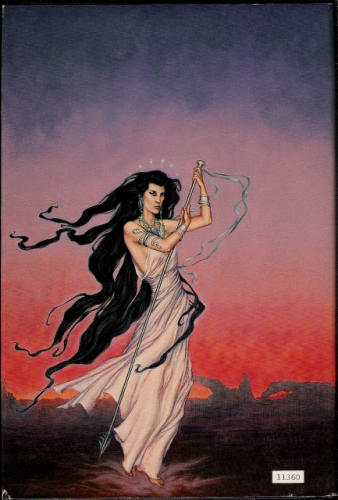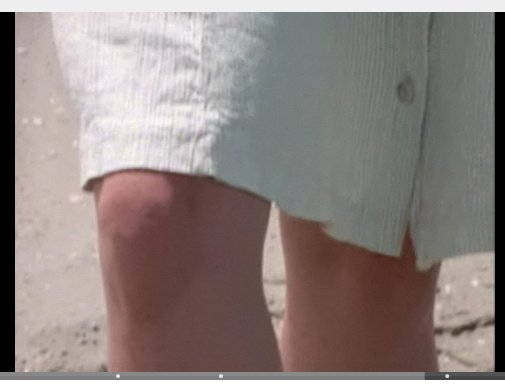I was reading Wikipedia the other day and I came across an exhaustive article on The Corset Controversy. I read all the testimonials, arguing pro- and anti-, in various 19th-century periodicals, and I was like, “Is this for real? It sounds like something out of Penthouse letters.” My question occasioned an entire essay on the subject, cast in the form of a dialogue between me and Jareth. I’m just excerpting it here because I don’t feel like rewriting it univocally.
Me: Maybe you can help me.
Jareth: Certainly! Shall we parse the intricacies of Georgette Heyer’s complex portrayals of her female characters? ^_^
Me: No, but it’s tangentially related, insofar as I was reading about the Regency period on Wikipedia. Then I moved on to fashion in general, which, of course, got me into corsetry, which ended me up at an article called The Corset Controversy.
Jareth: Is this like The Woman Question?
Me: I dunno. What are you defining as The Woman Question?
Jareth: Oh, all that piss going back and forth in the latter part of the 19th century and the early 20th about women’s rationality, educability, legal rights, suffrage, etc., etc., etc.
Me: Not directly, although the two overlap chronologically. The Corset Question was a debate that ran on from about the 1790s to the 1890s. It was, of course, a disagreement over whether women should wear corsets, which was also referred to as tight-lacing or figure training. Detractors said that corsetry caused pain, squished the wearers’ bodies, reduced their lung capacity, muscle strength, and stamina, and ruined their health. Proponents said that, if practiced correctly, wearing corsetry was physically enjoyable, harmless to health, strength, and posture, and also fashionable/sexy.
Jareth: Are you sure that debate is over? –Because I don’t think it is. Whenever the subject of corsetry comes up online, usually in the context of costuming, Ren faires, and/or kinky clothing, there are always people who sound off on how disgustingly restrictive, painfully disfiguring, and generally evil corsets are. Then there are always people who are into corsetry who counter with something about it being perfectly fine if you do it right. Boy, is it tedious…
There are certain subjects, I think, that people have learned are bad through received wisdom. Like you should never put metal in a microwave because it will cause a nuclear detonation and wipe out your house. Or you should never trust a stranger who asks you for directions or offers you a ride because they’re clearly a child-molesting pervert who’s going to kidnap you, rape you, and leave you in a ditch. And you should never do any illegal drugs ever because they will either kill you the first time or damn you to a hell of escalating addiction and misery.
…I’d put people’s unreasoning objections to corsetry in the same category as stranger danger and the War on Drugs. People have worked themselves up into such a froth about the putative damage caused by corsets that they won’t stand to hear any actual information on the subject. Of course, the received wisdom is also so pervasive that it’s very hard to figure out what is true about corsetry.
Me: See – that’s kind of my problem.
…Reading selections of letters in the Wikipedia article makes me suspicious – specifically, all the pro-corsetry ones. Seriously, they all sound the same, especially when they insist over and over again that it was painful at first, but they quickly got used to it, and now they enjoy the “snug,” “tight” fit.
For example, there was a whole protracted argument in the Toronto Daily Mail about corsets, especially for girls and teenagers. It was in a weekly section called Woman’s Kingdom, and it started off on April 7th, 1883, with some mother asking if tight-lacing could be done without damage. There were the usual pro- and anti- sound-offs, and then there was a sidetrack about preventing girls from cutting the laces of their corsets overnight.
Here’s where I get suspicious. This is directly from the May 19th, 1883 Toronto Daily Mail in the Woman’s Kingdom section, page 5:
HOW TO PREVENT LACES BEING CUT.
“Mother” asks how to prevent her daughters taking off their stays during the night. I must confess I am a disciple of the old school, and believe in the efficacy of corporal punishment. The “severe punishments” …were whipping, which I administered. They were severe, but they served their purpose. Two applications prevented any further interference with the staylaces. I would recommend “Mother” to try the rod with her daughters. –STAYLACE.
ANOTHER PLAN.
I have a very simple plan to prevent my children cutting their laces when they are first put into tight stays, to obtain a temporary relief from the pain which is undoubtedly severe at first. When one of my girls disobeys me by removing her stays, I adopt this plan: After retiring, I fasten her wrists together with a silk handkerchief. This keeps her hands out of mischief, and she soon gets accustomed to the stays. –A.B., KINGSTON.
And here’s some more on the subject from the next week, May 26th, same paper, same section, same page:
CHILDREN AND STAYLACES.
I can entirely endorse what “A.B., Kingston” says, that the best way of punishing children cutting the laces of their stays is by confining their hands. Instead of a silk handkerchief I use a small leather strap, with which I fasten the wrists together at night to keep the hands away from mischief, and as a punishment I fasten the hands behind the back for the greater portion of a day. I find that a week’s restriction, which means a good wholesome position for the hands, induces a respect for the laces for all time to come. –A.R.
ANOTHER SUGGESTION.
I positively smiled at the plans suggested to prevent girls under training removing their stays, such as whipping them or tying up their hands. Mothers, listen to my plan. I get a small chain and a little padlock. When the stays are laced, I put the chain round the waist and fasten it with the lock, and put the key in my pocket, and there the stays have to remain till I remove the chain. Is that not simple? –COMMON SENSE.
Jareth: O_O Are you fucking kidding me?
Me: No! I’m legitimately getting this from pdfs of scanned Toronto Daily News microfiche that are freely available on Google News. Here’s a link to the head of the Woman’s Kingdom section for the May 19th quotes; go read it for yourself:
https://news.google.co.uk/newspapers?id=Yv1MAAAAIBAJ&sjid=9jQDAAAAIBAJ&pg=6659%2C4384004
Jareth: *clicking, reading*
Holy shit, you weren’t kidding. Wow, that makes me so sad.
Me: Yeah, but do you think that’s true?
Jareth: Are you seriously doubting the existence of corporal punishment?!
Me: I’m doubting the existence of bunches of people practicing what sounds weirdly like kinky bondage fantasies, combined with corsetry fetishes, on their kids.
…To me it sounds suspiciously like people getting a thrill from airing their fetishes in public through the medium of fictional letters.
Jareth: Oh… I was looking at it from a child abuse viewpoint. I can believe that it’s true because people visit all kinds of of horrible, degrading, painful treatment upon their kids.
I can also believe it’s true because of the simple fact that people wore corsets regularly at that time. That includes kids! I’ve seen the ads for kids’ corsets, so it’s not like it was a rare phenomenon. Also there was a whole spectrum of attitudes toward corsetry for children, so naturally there would be people toward the extreme end who would lock their kids into stays at nighttime.
…I’m sure that some of the pro- letters were just elaborate whack-off hoaxes, but you say that this Corset Question went on for over a century, with pretty much the same arguments back and forth. I don’t think a 120-year-long whack-off hoax campaign over multiple countries, through multiple media outlets, is really likely. I think it’s much more probable that people were just coughing up the same pro- and anti- arguments at each other. Some of the pro- testimonials, I bet, were distortions and outright lies, and some were accurate reflections of how the writer perceived their experience. But I’m inclined to judge it a real controversy with real beliefs, real people, real stories, and real experiences behind it, even if it sounds pornographic.
By the way – I think you’re imposing your own modern judgment on this whole subject.
…Nowadays, pretty much no one wears corsets; they’ve gone from ubiquitous articles of clothing to costume-like things associated with extreme sexualization and kinky sex. You’re probably reading kinky sex back into the Corset Question because that’s what corsetry signifies to you, the modern reader.
Me: Mmmm, true. That makes sense. At the same time, though, I also see the Corset Question as intimately related to the Woman Question. If the Corset Question is about women’s physical freedom, then the Woman Question is about women’s legal and political freedom. The social body thus literally becomes a site for conflict as various people try to control it via the Corset Question, thus expressing their answer to the Woman Question.
Jareth: …So the Corset Question really is the Woman Question. Interesting.
Hey, can we talk about Georgette Heyer now?
Me: How ‘bout later? Writing an essay on the Corset Question just tired out my brain.
Jareth: Okay! I’ll hold you to that! ^_^



